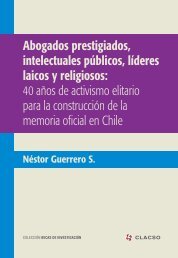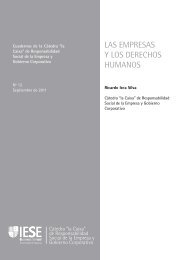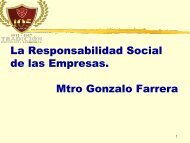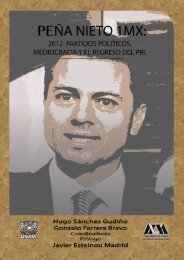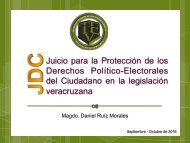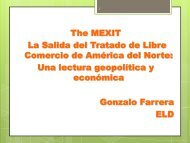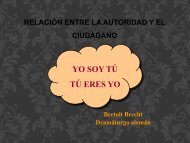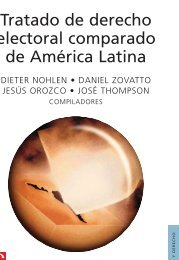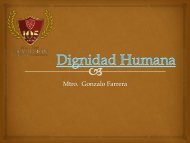0745685749 enemies democracy
You also want an ePaper? Increase the reach of your titles
YUMPU automatically turns print PDFs into web optimized ePapers that Google loves.
24 The Inner Enemies of Democracy<br />
to be like God, acting as free, self-determined subjects<br />
who shape their own destiny.<br />
This is not the place to enter into the details of this<br />
debate, one of the most important in Christian history.<br />
The official dogma of the church is still the one<br />
bequeathed by Augustine, but throughout the history of<br />
Christianity, it has been necessary to combat the rebels,<br />
those who ascribe too active a role to man. They are suspected<br />
of being contaminated by the Pelagian or at least<br />
‘semi-Pelagian’ heresy. ‘Fundamentalist’ Christians take<br />
a stand against this deviation. For Luther, it is inconceivable<br />
that man can ensure his salvation by his own<br />
efforts. The Jansenist controversy was fought out on<br />
the same ground: when Pascal describes man after the<br />
Fall, you can hear in his words the reproaches addressed<br />
to the Pelagians. Pascal imagines God saying that man<br />
‘wanted to make himself his own centre, independent of<br />
my help. He withdrew from my domination and, as he<br />
made himself equal to me in his desire to find his happiness<br />
in himself, I abandoned him to himself.’ 5 Calvin, as<br />
shown by Louis Dumont, forged a remarkable synthesis<br />
of the two views. By bringing the individual with his<br />
values into the social world, by interpreting his submission<br />
to divine grace as an act of will, man shapes himself<br />
in the image of God. In this way, Calvin contributes to<br />
modern Prometheanism. 6<br />
In parallel with this, from the Renaissance onwards,<br />
non-religious authors engaged in a defence of human<br />
abilities, which is why they are known as humanists.<br />
Among the opponents of Augustinian pessimism<br />
about human nature we find, for example, Pico della<br />
Mirandola, whose thinking is similar to that of Pelagius,<br />
even if he does not mention him: Pico’s God speaks<br />
to man in terms very different from those transcribed<br />
by Pascal: ‘you may, as the free and proud shaper of<br />
your own being, fashion yourself in the form you may<br />
prefer’. A few years later, in the early sixteenth century,




